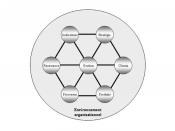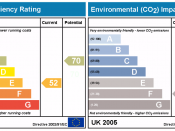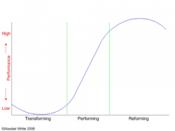Introduction
According to Williams (Fletcher 2001) performance management systems exist to manage and integrate organizational performance and employee performance. On the basis of an organisation's performance management system employee's individual performance is measured to provide information for decisions regarding rewards, training and development requirements (Anon. 2004a). Closely linked with the term 'performance management system' is the term 'performance appraisal' (Furnham 2004).
The term 'performance appraisal' referred once to a process in which a manager completes an annual report on the performance of a subordinate and afterwards discusses it with the ratee in an appraisal interview. The performance-rating manager is the person, who conducts the performance management appraisal, i.e. the manager who rates his subordinates (Fletcher 2001). Nowadays the term 'performance appraisal' stems wider. Performance appraisals have become an important part of human resource management strategies known as performance management (Fletcher 2001; Waite & Stites-Doe 2000).
The information aroused from the appraisal process is used for multiple purposes (Boyd & Kyle 2004).
Referring to American data, Furnham (2004) notes the most important purposes of performance management systems: improvement of work performance, administering merit pay and making promotion decisions as well as advising, counselling and motivation of employees.
Although implementing a performance management system and conducting performance appraisals are very important, validity and justice of performance appraisals should be put into question. Research has identified numerous possible errors and biases which can occur in the evaluation process and which can distort the results. This paper focuses on one type of error and questions whether biases due to the relative weightings as influenced by the subjective perceptions of the performance-rating manager can be avoided.
In a first step, different types of biases will be explained shortly to subsequently consider in a second step some approaches, with which it is tried to avoid or...


